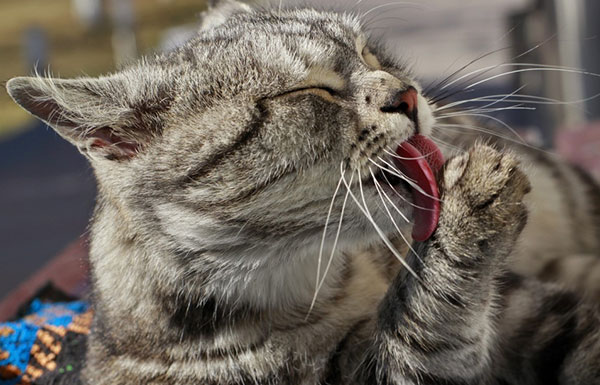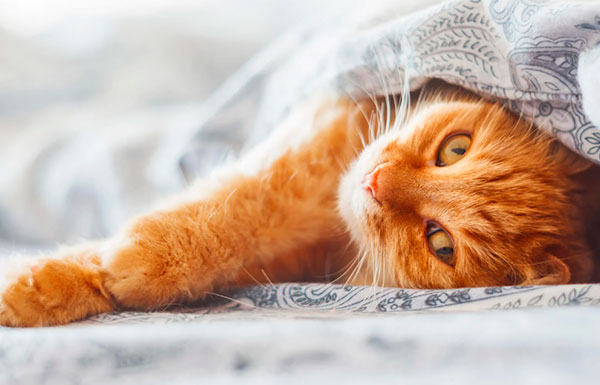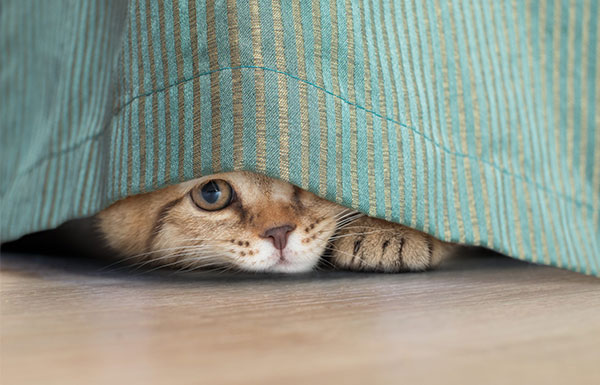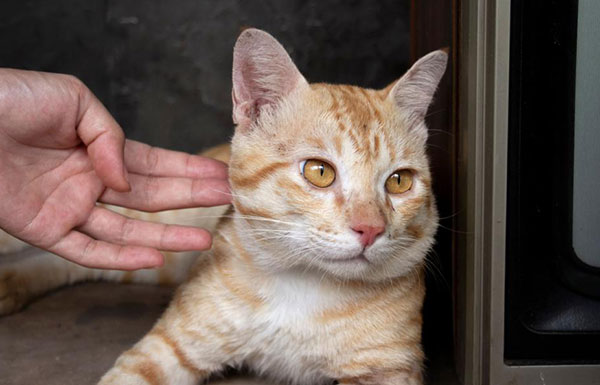Have you noticed your cat acting a little different lately? Felines may be masters at hiding their feelings, but stress often finds its way into their behavior. Learning the signs of stress in cats is not only about solving a problem, it’s about protecting their health and happiness.
Imagine your furry friend suddenly hiding under the bed for hours, or refusing their favorite meal. It feels worrying, doesn’t it? But the good news is that once you know what to look for, you can step in and help your feline feel safe again.
Below are 10 signs your cat is stressed, along with simple, caring steps you can take to bring comfort back into their world.
What are the Common Triggers of Feline Stress?
Understanding what causes stress is just as important as spotting the signs. Cats are creatures of habit, so even small changes can feel overwhelming to them.
- Changes in Territory: Moving house, rearranging furniture, or even a new smell in their space can unsettle them.
- New Pets or People: The arrival of another cat, dog, or even a baby can feel like an intrusion into their safe world.
- Disrupted Routine: Cats thrive on predictability. Missed feeding times or sudden schedule changes can spark anxiety.
- Loud Noises: Thunderstorms, fireworks, or ongoing building work often leave cats hiding or restless.
- Illness or Pain: Health issues can create both physical discomfort and emotional stress, often showing up as unusual behaviours.
Pause for a moment and recall if you have seen your furry friend experiencing any of these changes recently? Pinpointing the trigger helps you address the root cause, not just the surface behaviours.
Signs of Stress in Cats
1. Changes in Appetite

One of the most common cat stress symptoms is a sudden change in eating habits. Your cat may stop eating or, on the other hand, eat too much. Both are red flags.
How to Help:
Offer meals at the same times every day and keep the feeding area calm and quiet. If your cat continues to avoid food, speak with your vet.
2. Excessive Grooming

Cats are clean animals, but over-grooming can mean more than just fussiness. Stress can cause them to lick or chew themselves until they lose fur or damage their skin.
How to Help:
Try adding scratching posts, climbing trees, or puzzle toys to keep them busy. Also, gentle play and brushing sessions with you can ease their worries.
3. Frequent Urination or Spraying
Stress often shows up as litter box issues. Your cat may urinate more often, go outside the box, or spray around the home.
How to Help:
Keep litter boxes clean, quiet, and easy to reach. Having more than one litter box around the house can also help. If the behavior continues, get your cat checked by a vet to rule out medical problems.
4. Aggression or Avoidance

Have you noticed sudden hissing, scratching, or biting? Or maybe your cat hides when you walk into the room? These shifts can be feline stress symptoms.
How to Help:
Give them safe spaces to retreat to—like cozy beds or high perches. Don’t force interaction. Let them come to you when they’re ready.
5. Excessive Vocalization

If your cat suddenly starts meowing, yowling, or crying more than usual, stress could be behind it. Think of it as their way of asking for help.
How to Help:
Spend more time playing or cuddling (if your cat enjoys that). Puzzle feeders or treat toys can also redirect nervous energy into something fun.
6. Changes in Sleeping Patterns

Felines love naps, but one of the signs of stress in cats is excessively sleeping which means you may find your furry friend sleeping more than usual, or struggling to relax at all.
How to Help:
Create a quiet, cozy sleeping spot. Stick to daily routines so your cat knows what to expect. Calming pheromone diffusers can also encourage rest.
7. Avoiding the Litter Box

When your cat avoids the litter tray, it’s not always about being “naughty.” Stress can make them too anxious to use it.
How to Help:
Check that the litter box is in a quiet, low-traffic spot. Keep it clean and odor-free. If the issue continues, consult your vet for guidance.
8. Destructive Behavior

Scratched furniture, chewed wires, or shredded carpets can all be signs your cat is stressed and looking for a way to release energy.
How to Help:
Give them acceptable outlets like scratching posts or cardboard scratchers. Reward them when they use these spots. Deterrent sprays can help protect furniture in the meantime.
9. Hiding More Often

Picture your cat spending hours under the bed or behind the sofa. While hiding is normal at times, excessive hiding can signal stress.
How to Help:
Offer safe hideaways like cat caves or boxes, but don’t disturb them when they retreat. Give them space and reassure them with calm interaction when they’re ready.
10. Changes in Social Behavior

Cats may suddenly cling to you, follow you from room to room, or, in contrast, act distant. These shifts are often linked to feline stress.
How to Help:
Respect their mood while maintaining routine play and gentle interaction. A predictable environment helps them feel secure.
Why It Matters
Recognising the 10 signs your feline is stressed early can protect not only their emotional wellbeing but also their physical health. Stress left unchecked can lead to illness.
Therefore, think for a moment if your cute companion shows any of these signs of stress in cats? Try observing them today. Even small changes in daily care can make a world of difference to their comfort.
FAQs
Q: How quickly can cat stress lead to health issues?
A: If stress stays unresolved for weeks, it can worsen into urinary problems, digestive upset, skin issues, or weakened immunity.
Q: How do I tell stress vs medical illness?
A: Always start with your vet. Many felines stress symptoms overlap with illness. If medical causes are ruled out, then treat stress factors.
Q: Can all cats recover fully from stress?
A: Yes, most felines bounce back when stressors are removed and the environment is supportive. Chronic stress needs longer care.
Q: Should I use pheromone diffusers or calming supplements?
A: They can help as part of a broader plan. But they rarely fix stress alone—you must adjust the environment and behaviour too.
